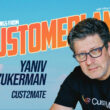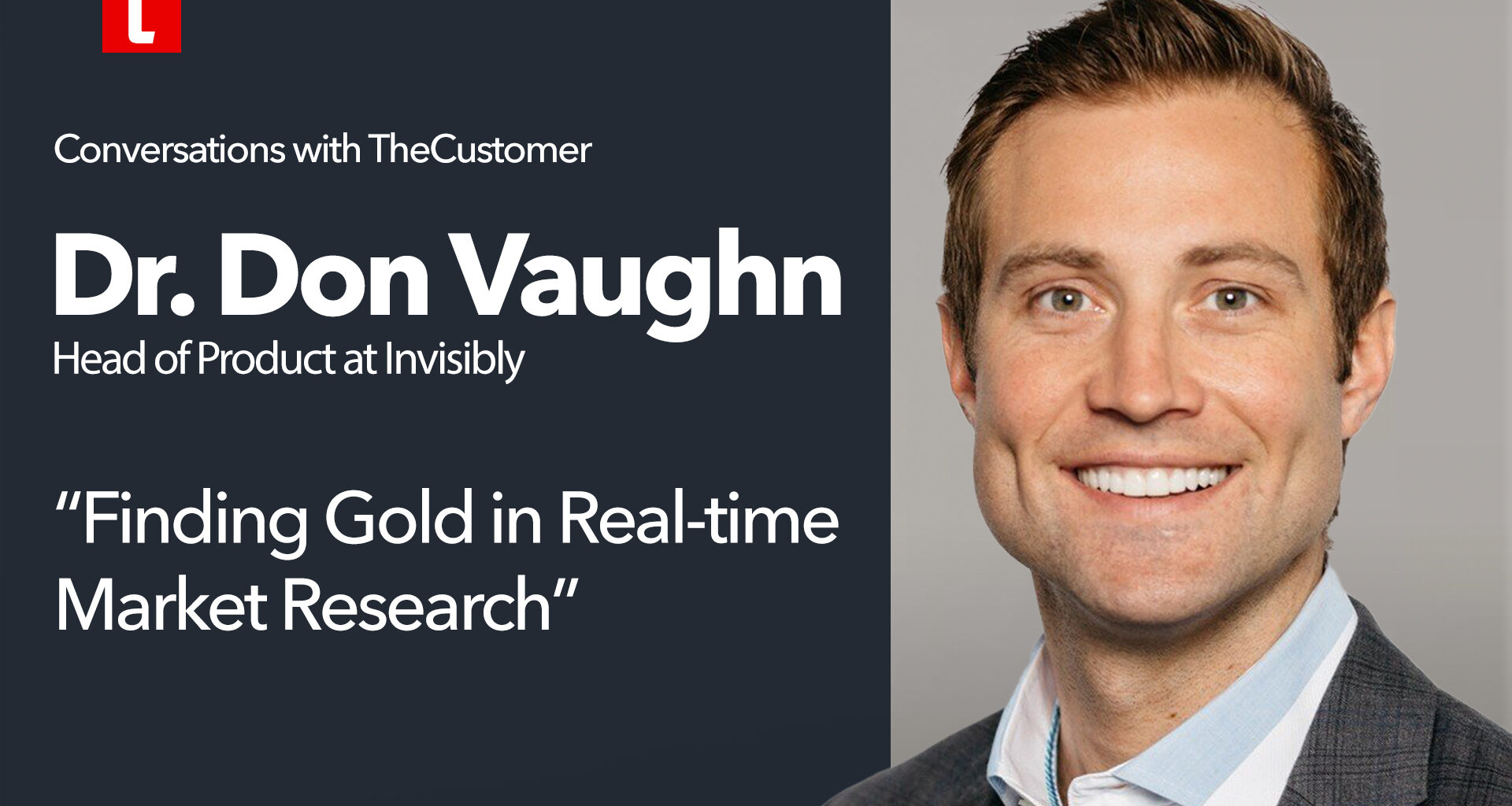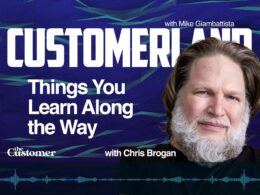Finding Gold in Real-time Market Research – a conversation with Dr. Don Vaughn, Head of Product at Invisibly
Invisibly is one of a small handful of market research firms that correctly called the 2020 presidential election. And then only missed it by 4 electoral votes! Dr. Don Vaughn is head of product for Invisibly and has a lot to say about the state of market research and where/how marketers are learning to gather accurate, actionable consumer insights.
In this recent chat, Don and Mike Giambattista, publisher of TheCustomer, address, among other topics:
- Corporate responsibility and how consumers are reacting to organizations’ efforts to be good citizens.
- How American consumers are feeling about Covid vaccinations as the prospect of wholesale availability becomes a reality.
- The age & demographic differences that are defining responses to Covid rules, regulations and protocols.
- and much more.
Below is the full transcript of this conversation.
THECUSTOMER
So I’m talking to Dr. Don Vaughn, who is head of product at Invisibly. Um, Invisibly is, uh, is a polling and serving mechanism. – it gives you live almost real-time results. It sounds like with incredible degrees of accuracy. So we’ve been looking over some of the research that Invisibly sent over and want to talk a little bit about that, but first, maybe a little bit more about what Invisibly is in the marketplace for market research, because as you just mentioned, there are a lot of antiquated methods out there. There are a lot of people using crazy newfangled methods, but they just aren’t giving effective results. So what is this? What’s the secret sauce. If we can talk, what about it that, uh, that’s behind Invisibly’s accuracy.
DON VAUGHN
So market research is a tough thing, you know, as a scientist, uh, I always had a tough time. How do you get an accurate sample? We’re going to test people. How do you get a hundred, a thousand, 10,000, a hundred thousand responses? And so I essentially, you and building the tool that I wished I had when I was back in the academia in order to ask people.
So market research is done a lot of ways. You can drive people to your website. Maybe they ended up doing that. You can ask them in person, although that’s obviously gone down a lot. Text messages, lots of different ways would invisibly secret sauces is we are able to do market research, uh, at scale by embedding ourselves across tens of thousands of different publications, uh, newspapers and journals and things that you’ve, uh, for sure read online.
So we get that really nice reach and that’s the key to having an accurate sample it’s showing up on both Fox and CNN and getting both sides. And because it’s both people are gonna weigh in on the issue. So. Our secret sauce is really digital distribution when everybody else is still using phones. Still using analog.
THECUSTOMER
Interesting, interesting. So, uh, we looked at some research, uh, that, and I’m going to try and get this right. But you can correct me if I don’t, um, where you pulled American consumers on their, um, I guess their feelings on corporate values and, and how that plays out into their choices in purchasing. What, what were some of the most interesting things you found in that?
DON VAUGHN
Yeah. You know, I think one of the hardest things I’m sure, you know, as an exec is just that sometimes you have to make decisions that seem to just add to your cost structure, but, and, and, you know, they have the benefit, but you can’t quantify it. So for example, you want to raise employee’s wages. Okay.
Well, I know how that impacts my cost, but how’s that going to impact my revenue? Open question, harder to justify those kinds of decisions. We partnered with a company called Verity. That’s trying to draw a mathematical link between. The types of actions that businesses take and how, what kind of brand equity that creates, what are people willing to pay for your product because of the way they behave independent of the product itself.
It’s about you. And so one of the things that’s interesting around there is how much you pay your employees. Um, and so with Verity, we used our real-time research product. We got, you know, over a thousand responses, I think in a day or two days. So really quickly that’s our real-time aspect. And we said, Hey, Are you more likely to shop at a store or with the brand that pays its customers $16 instead of $12, um, or, or more during COVID we ask it a few different ways and we found overwhelmingly yes, it’s 72% of Americans are more likely to shop at a brand because of how they treat their employees.
Totally independent from low cost and good delivery options and all the things you care about. Um, you know, we’re seeing this shift that more and more and more because of the internet and transparency, how companies treat their employees that comes out, people care about that stuff. They know they can have one-on-one relationships with your employees as friends and family and readers of their content. So it does matter. And that’s pretty strong relationship. 72%.
THECUSTOMER
Yeah, I’d say that’s huge. So as it turns out, corporate citizenship is a, is an important factor in the decision-making.
DON VAUGHN
Yeah. And I’m just going to put in a piece of, you know, I did neuroscience research for a while, so we actually did a study on this.
We put people in a brain scanner and we said, Okay. Um, we just, we, we, they would read what, what people did. So people would, uh, we would either what people did or what brands did, and what we found that was so surprising is that your brain does not tell the difference between a person taking an action and a brand because you didn’t evolve that machinery.
You mean, you know, you don’t, we’ve only been thinking about corporations and brands for hundreds, or maybe a thousand years, and the idea of companies. So like you, you, you think of them as a person. Right. We’re going to corporation that same, discuss that same wanting for revenge. It’s all there. Like with some, you know, an airline treats you badly, you don’t go “Oh, that’s just a corporate structure”. No – you get pissed.
THECUSTOMER
Right, right. Interesting. Be fun to look deeper into that because, um, you know, there are so many and we, and frankly, we interact with a lot of these companies who are trying to figure out brand affinity and brand loyalty beyond just, uh, purchase metrics. You know, what are the feelings that go into a purchase decision? It’s not all rational. In fact, It’s probably only a small portion. Rational.
DON VAUGHN
Yeah. You’d be a great neuroscientist. That’s exactly it. Which is, you know, there’s multiple axes that people make decisions. Some of it’s rational for sure. Usually relative prices.
We know brains are only good at the relative price. We don’t know an abstract. If a toaster is worth 400 bucks, it’s the other models only 200. So you’d make your decision then there’s this emotional access. How do you feel at the moment? Uh, did they give you a good vibe when you’re talking with them?
Absolutely factors in emotional emotions, aren’t an accident. They’re real part of your brain and they’re there for a reason. And then there’s a third axis of social stuff, which is that you might buy stuff because you’re your tribe. Trust it. And you just outsource the fact that, well, they do it and I’m part of the tribe.
THECUSTOMER
So I don’t know if that’s all Verity’s work or if that’s research that Invisibly has, but, regardless of who’s putting it out, we’re interested in and seeing it and talking more about it in, in future versions of it. The other thing I wanted to bring up is some of the research that we saw from Invisibly that had to do with how parents are kind of tracking vaccines. As it relates to their child’s safety. And, and I looked at this and, and, um, you know, just because of, I think the culture I personally live in, um, and where I happen to live and breathe, it, it looks one way, but there are big parts of the country that feel. Vastly different from the way I do. So you want to comment on a little bit?
DON VAUGHN
Yeah. Yeah. It’s really interesting. You know, so again, it’s just, you know, it is, we have this real-time research product. We can put out, uh, surveys and get responses, you know, thousands of responses in a few days. And so one of the ones we’ve been doing just to finally, you know, kind of keep our pulse on what’s going on, is, are parents going to vaccinate their children?
How comfortable do you feel? And, you know, for your, for your viewers, listen to me right now. What do you think? And. What percentage of America do you think is actually going to do that? And it turns out. The number is 26% of parents plan to get their children vaccinated immediately. So about a quarter are actually going to do it right away, which is not a lot, you know, I mean, there’s a lot of this wait and see attitude.
We’ve been doing this real time research over the last four months, track vaccine hesitant, seen it used to be about 50 50 that people are not going to get it. This is for adults and that number has gone down as information campaigns and no one they know have gotten, you know, sick, but look.
THECUSTOMER
There’s a reason why people are hesitant to serve as the vaccines are all safe and then blood clots, these little, very small risk comes out. And so there’s these things that do come out. And so there’s a lot of hesitancy around kids, you know, and these are your kids after all, you know, there’s, there’s no more important item in your life really, to care for. So completely understand that.
DON VAUGHN
Yeah. And it’s like, it’s like an active thing you could have actively hurt them or you could have actively saved them.
It’s just a tough decision. So my, you know, my empathy is out there with other fellow parents. What’s interesting about that. Um, Mike, is that it actually varies with your kid’s age. So, um, You know, if there’s zero to five, only about 9% would do it. And if it’s six to nine years old, it goes up 10%, 10 to 13 goes to 18%.
And if you’re a little older, 14 to 17 years old, if your kids up to 24%, and then again, 39% won’t vaccinate them at all. So, so you see this increase, um, as you feel it’s maybe safer for your children.
THECUSTOMER
I don’t know if this was tracked in your research at all, but are there, and this might be too dangerous to ask, but are there geographic differences? Did you track geographies? Did you track, uh, political leanings and that’s really dangerous? So we should, let me just, I won’t forget that one.
DON VAUGHN
No, no, no, it’s good. I’ll say I’ll with that, you know, I’m a scientist, I’m probably somewhere in the middle. I’m just watching both sides do their thing. Um, so we, with real-time research, you can get data down to a zip code level.
So we. We also partner with political consultancies to see in which zip codes is there, you know, is there a candidate doing well or not? Well, so we can sort of do that. Micro-targeting and say, here, you can break it out by geography. I didn’t do it on this survey, but I have found in similar surveys, uh, about COVID it, it breaks down as you exactly as strongly as you think it might break down by political affiliation and geography, uh, based on, you know, all the stereotypes around that tends to shake out that way.
Another thing that’s maybe, maybe it’s something I can talk about specifically is that it also varies a lot on parent aged, which is that, uh, younger parents. Yeah. Oh, it’s, it’s striking, it’s this beautiful down line, you know, as a scientist, it’s a beautiful line going down at very clear that if you’re 18 to 24, 63% of those individuals are likely to get their kids vaccinated as soon as possible.
And when that goes down, you’re 55. Plus that number goes down to only a quarter. So it really is very age dependent that younger demographics, younger parents are much more likely to get their kids vaccinated.
THECUSTOMER
So I listen to statistics and research like this and, and beyond the fact that this is just fascinating stuff.
The next question is obviously what can you do with this? And I think, I think, um, if you’re willing to come back for followup conversations, I think it’d be great to talk about some of the research that you’re working on, and then maybe bring in some other people who are in charge of making that actionable and trying to create a holistic conversation around the incredible insights that you guys find and how we can derive better customer interaction, better brand loyalty, healthier populations out of it.
DON VAUGHN
So, absolutely, uh, at a great time. Thanks for having me, Mike, and, uh, there’s, you know, there’s lots more to be talked about.
THECUSTOMER
Great. Thanks a million. Don Vaughn is Head of Product at Invisibly. Thanks a million. Look forward to the next time we’re going to do this.













